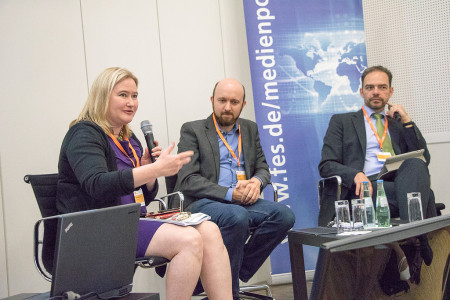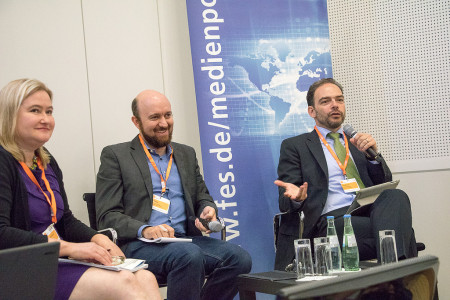by Jana Fintova
Photos by Timmy Hung-Ming Shen
Google, Facebook and Twitter, but as well as the telecommunication companies such as Vodafone and Orange are some of the examples of the so-called “Internet intermediaries”, that guide users through the web of information and knowledge.
“Any activity that you share online, either in the form of a blog, Tweet or digital journalism is being mediated by these intermediaries. Lots of questions are arising, such as whether these companies are really being transparent about their services, what really is being collected about the users, with whom it is shared, under what circumstances and how long the information is kept,” says Rebecca MacKinnon, Project Director of the Ranking Digital Rights.
Users normally don’t have an idea about the company practices, that directly affect their freedom of expression and privacy.
Are they too powerful?
According to Frane Maroevic, OSCE Representative on Freedom of the Media, it is not always transparent how the decisions are being taken, “If you are a blogger with many followers and you exercise your right of freedom of expression online, you can find yourself with your account being blocked or deleted the next day. “
Rebecca MacKinnon mentions a case from a year ago when Facebook wrongly deactivated the accounts of women whose first name was “Isis” assuming the Facebook profiles referred to the terrorist group, “Companies, which take the online content down immediately, often don’t understand what is being discussed or shared. Companies have to be accountable for what is being restricted, under which mechanism and who is responsible. ”
“We need a system of checks and balances, addressing the important questions such as whether you can raise an appeal when your account gets deleted. Governments need carefully to step into this issue,” says Mr. Maroevic.
Who shall take the action to protect our fundamental rights?
The companies might sometimes block or delete the content that might be perfectly legal. Who decides what is irrelevant? Why, for instance, the account of Donald Trump does not get blocked for his online expressions?
“Sometimes it is easier just to say that the Facebook took the account down and there is nothing we can do about it. But this does not resolve the problem. Accountability needs to be situated in order to address the harmful acts, we have to look at what level does the law target the responsibility,” adds Rebecca MacKinnon.
“The fundamental rights are crucial. I would not allow computers to take decisions about the fundamental rights. This is not a case of algorithm” adds Frane Maroevic.





